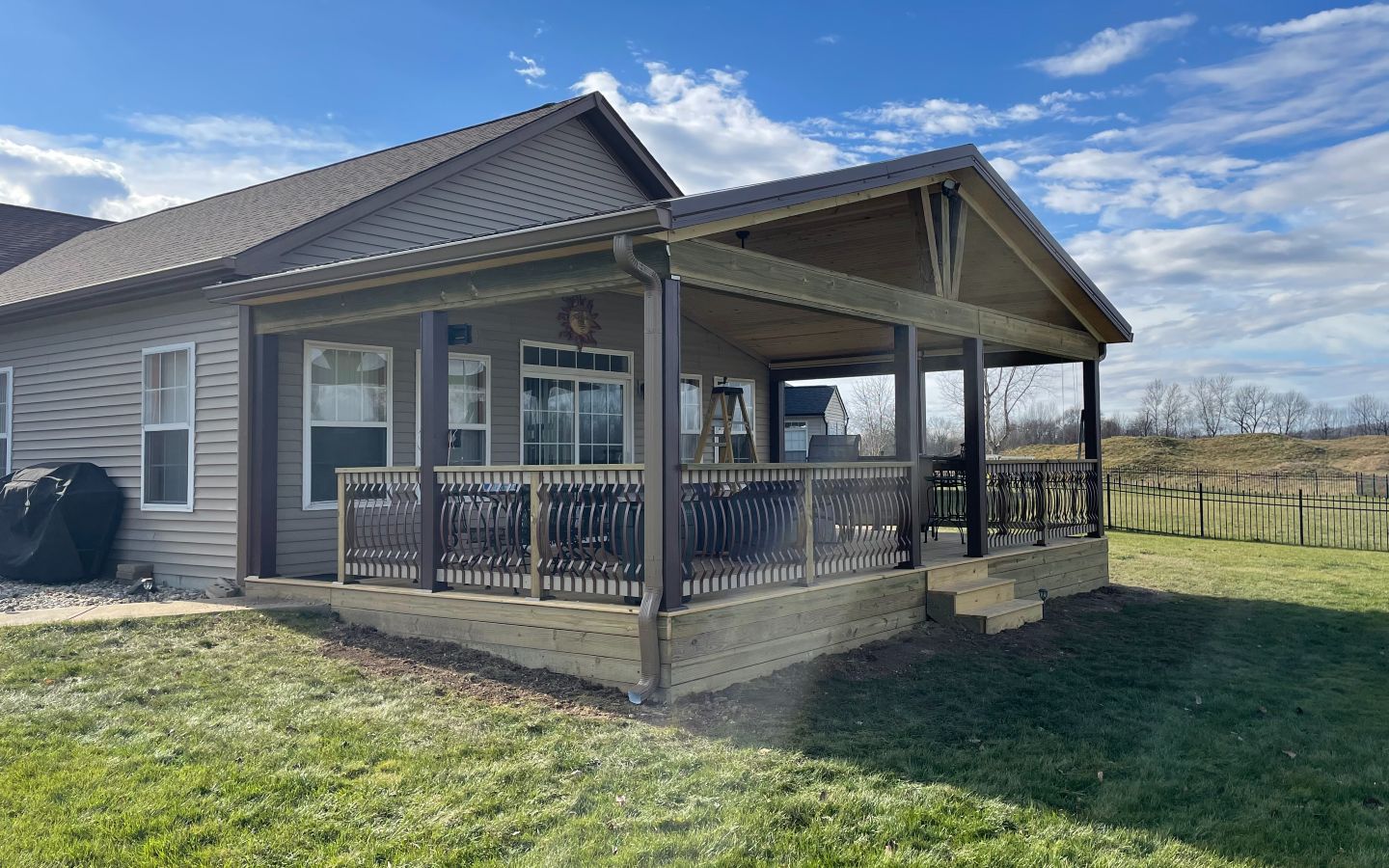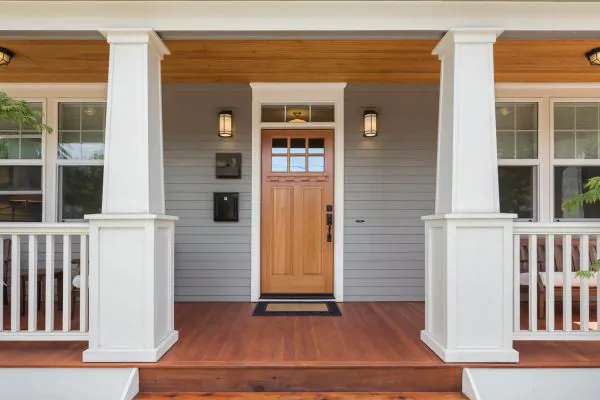Everything you should know before hiring the Best Deck Builders Near Me
Everything you should know before hiring the Best Deck Builders Near Me
Blog Article
Exploring Different Types and Benefits of Deck: A Comprehensive Overview
The outside deck is even more than simply an extension of one's living area; it's a testimony to personal style, a location for social events, and a shelter to relax. The selection of outdoor decking product significantly affects these elements, with choices ranging from the traditional attraction of wood to the practicality of composite, and the sturdiness of light weight aluminum. Understanding the nuances of these materials is necessary, so allow's begin our expedition, one deck kind each time.
Understanding the Essentials of Outdoor Decking Material
Decking product acts as the backbone of any deck project, determining the overall appearances, resilience, and functionality of the end product. The market uses a large series of products, each with special features matched to various layout preferences and environmental conditions. The choice consists of natural wood, composite, plastic, aluminium, and even concrete. Wood, being the conventional selection, gives an ageless, traditional charm. Compound, a combination of timber and plastic, supplies wood-like looks with less upkeep. Plastic and aluminium supply contemporary, minimalistic alternatives, while concrete is preferred for its unequaled sturdiness. The selection of material significantly influences the deck's life expectancy, maintenance demands, and resistance to components. Comprehending the basics of decking material is important for an effective deck task.
Advantages and Downsides of Timber Decks
In evaluating deck types, comprehending the benefits and drawbacks of wood decks comes to be crucial. This entails considering factors such as the sort of timber chosen and its impact on the deck's efficiency. The subsequent conversation will explore these points carefully to supply a comprehensive view of the downsides and benefits related to wood decks.

Timber Deck: Disadvantages & pros
The appeal of timber decks can not be overemphasized. They exude a timeless charm and warm visual that numerous property owners find tempting. This all-natural material is versatile, permitting a variety of style opportunities, and can supply an exceptional roi.
However, timber decks also come with specific downsides. Its longevity can be much less than other outdoor decking products, specifically if not effectively cared for.
Choosing Your Wood Type

Discovering the Benefits of Compound Decking
Transforming attention to composite decking, it provides special advantages. Its sturdiness outperforms conventional wood in extreme climate condition, decreasing the requirement for frequent maintenance. It offers a pleasing visual appeal with variable layout alternatives.
Composite Decking Sturdiness Advantages
Regardless of the plethora of decking alternatives readily available in the market, composite outdoor decking stands out for its sturdiness. This type of outdoor decking, made from a mix of timber and plastic, supplies a resilient, long-lasting platform immune to aspects that typically deteriorate various other materials. In recap, the durability advantages of composite outdoor decking provide a lasting, cost-efficient solution for exterior living rooms.
Maintenance of Compound Decks
Along with durability, composite outdoor decking boasts a significant advantage in terms of maintenance. Unlike conventional wood decks, composite decks are not prone to rot, warp, or insect damage, hence significantly minimizing the demand for normal repair services and substitutes. They additionally need no staining, sanding, or paint, making them a time-saving choice for homeowners. Cleaning a composite deck is a simple job, often just requiring a move or a mild clean with a light soap and water. The low-maintenance nature of composite decks not just gives simplicity of upkeep but likewise adds to their long-lasting cost-effectiveness. This sensible advantage, combined with the material's inherent resistance to weathering and decay, makes composite decking a recommended option for numerous individuals seeking a long lasting and easy outdoor decking remedy.
Visual Allure and Variability

The Increasing Appeal of Aluminum Decks: Why Select Them?
As the demand for long lasting and low-maintenance decking rises, light weight aluminum decks are progressively ending up being the go-to choice for many house owners and building contractors. These decks, made from a light-weight yet sturdy metal, provide a number of advantages over conventional timber or composite decks. To begin, aluminum is naturally immune to the aspects, implying it will not warp, crack, or fade in time. This makes it a cost-efficient choice in the lengthy run. Additionally, its non-porous surface prevents the growth of molds, insects, or fungis, ensuring a tidy and healthy and balanced outdoor space. Aluminum decks are also environmentally pleasant, as they are often made from recycled products and can be reused once again at the end of their life expectancy. Their modern-day and streamlined aesthetic allure fits well into modern home layouts.
Maintenance Tips for Different Decking Materials
All-natural timber decks require regular tarnishing or sealing to protect against climate damages, while composite decks require routine cleansing with soap and water to remove spots and particles. Comprehending these upkeep needs is essential for deck proprietors to maximize their financial investment and maintain their decks find more looking their finest for years to come.
When Choosing Your Deck Type, variables to Consider.
Composite decks resist moisture well, making them suitable for rainy or moist areas. While some may prefer a lavish, unique timber deck, spending plan constraints may necessitate a much more affordable choice like pressure-treated wood. Therefore, environment, price, lifestyle, and maintenance are key considerations in deck choice.
Final thought
Timber decks bewitch with natural charm, while composite and light weight aluminum selections supply durability and low upkeep. Prior to committing to a particular deck type, house owners should thoroughly consider the advantages, downsides, and upkeep needs of each material.
In examining deck types, recognizing the pros and cons of timber decks comes to be essential.Regardless of the plethora of outdoor decking alternatives offered in the market, composite decking stands Recommended Site out for its durability. Unlike traditional timber decks, composite decks are not susceptible to rot, warp, or insect damage, thus considerably reducing the demand for normal repair services and substitutes. These decks, made from a lightweight yet strong steel, supply numerous advantages over typical timber or composite decks. Natural wood decks need regular sealing or discoloring to prevent climate damage, while composite decks need routine cleansing with soap and water to eliminate discolorations and particles.
Report this page